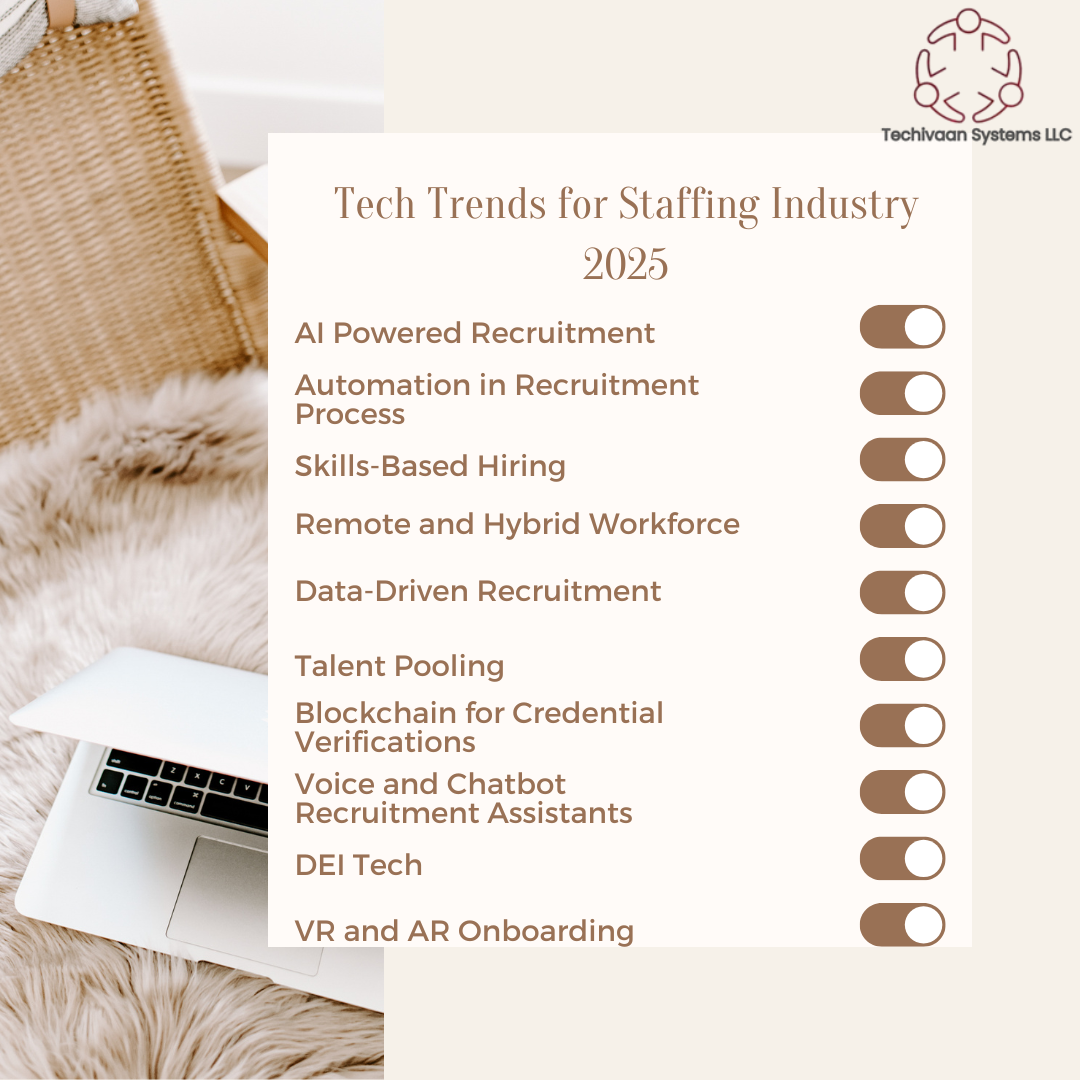
Stay ahead of the curve! 🌟 The future of staffing in the tech industry is evolving, and here are the top trends that will shape recruitment in 2025.
- AI-Powered Recruitment
Artificial intelligence (AI) will revolutionize candidate sourcing and screening. AI tools will help identify the best-fit candidates faster by analyzing resumes, social media profiles, and behavioral data, making recruitment more efficient and less biased.
- Automation in Recruitment Processes
Automation will continue to streamline repetitive tasks, such as scheduling interviews, sending notifications, and managing candidate pipelines.
- Skills-Based Hiring
With the rise of skill assessment platforms, companies will prioritize skills over traditional qualifications. AI and machine learning will help assess candidates’ skills more accurately, reducing hiring biases and ensuring the best talent match.
- Remote and Hybrid Workforce Management
The future of work will see more hybrid and remote staffing models. Recruitment strategies will adapt to source, assess, and onboard candidates for virtual roles, leading to greater flexibility in staffing.
- Data-Driven Recruitment
Data analytics will play a critical role in recruitment, helping staffing firms and employers make data-backed decisions. Analytics tools will track recruitment trends, evaluate hiring processes, and predict hiring needs.
- Talent Pooling and Candidate Communities
Instead of focusing solely on individual job postings, staffing companies will increasingly build long-term talent pools. These communities will help recruiters proactively connect with top talent, reducing time-to-hire and improving hiring outcomes.
- Blockchain for Credential Verification
Blockchain technology will be used to verify candidates’ credentials, qualifications, and work experience, making the hiring process more transparent and secure.
- Voice and Chatbot Recruitment Assistants
Voice assistants and AI-driven chatbots will play a major role in candidate interaction, answering questions, scheduling interviews, and even guiding candidates through the hiring process.
- Diversity, Equity, and Inclusion (DEI) Tech
Tools that help identify and reduce bias in recruitment, while promoting diversity, will become crucial. AI and other technologies will analyze hiring patterns and suggest ways to improve DEI efforts across recruitment processes.
- Virtual Reality (VR) and Augmented Reality (AR) Onboarding
VR and AR will enable virtual job previews and immersive onboarding experiences, helping candidates better understand roles and company culture before they start, especially for remote and hybrid positions.

